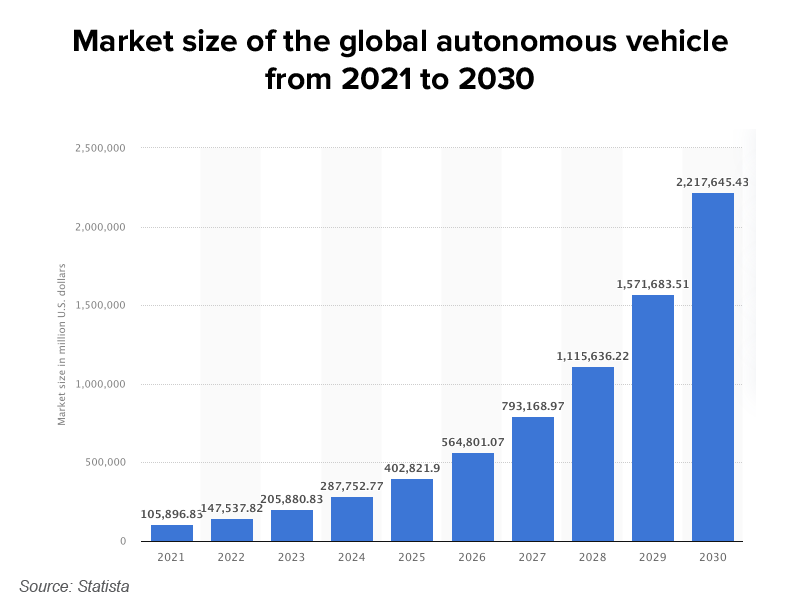The dawn of digital advancements and the adoption of Software as a Service (SaaS) has enabled the automotive industry to innovate and operate products of higher complexity. With the adoption of SaaS, automotive companies can access a wide range of services, including customer relationship management (CRM) and data analytics.
It delivers a real-time view of the product quality and production line, allowing manufacturers to better manage the operations, improve customer satisfaction and stay ahead of the curve. Compared to traditional systems that need to be installed, configured, and maintained on the in-house premise, SaaS solutions are much more agile, flexible, and scalable.
The automotive industry has been revolutionized by the widespread implementation of SaaS, enabling automakers to optimize production, deliver higher-quality products and ensure smoother workflows. Thanks to Software as a Service, the automotive industry has undergone a massive transformation in recent years.
SaaS: Transforming the Future of the Auto Industry
The innovation and advancements in technology have pushed automakers to utilize the power of SaaS, which delivers high-level comfort and improved utility to its users. The overall goal of implementing SaaS in the automotive industry is to make transport more intuitive, enhance care safety, and improve the driving experience.
It is why autonomous driving, electric cars, shared mobility, and connectivity have come a long way, from comic books and Hollywood movies to our roads. The day is not far when driverless vehicles will be as normal to see on the road as a smartphone in the present day. The rise of autonomous vehicles will lead to a massive demand for Software-as-a-Service (SaaS), and this is where software development services will rule the industry.
According to Statista, the market of autonomous vehicles will reach more than $2.3 trillion billion by 2030.
Benefits of Implementing SaaS in the Automotive Industry
The automotive industry has been quick to adopt Software as a service to keep pace with the digital trend and improve overall efficiency. This digital trend can help automakers in several ways, from streamlining their operational activities to improving customer experience and so on. It has enabled them to better manage the supply chain and stay competitive in today’s market.
Let’s discuss in detail some of the key benefits of implementing SaaS in the automotive industry.
1. Improved Collaboration and Communication
SaaS in the automotive industry allows manufacturers to effectively collaborate and communicate with one another, irrespective of where their counterparts are located. It means, with SaaS in place, teams can work on a single project from different locations while seamlessly sharing files and exchanging information in real-time. This high level of real-time communication can help improve the overall performance of team members and suppliers while effectively improving the efficiency of automotive companies and enhancing customer experience.
2. Increased Integration and Scalability
SaaS solutions that leverage cloud technology are more scalable and easier to integrate with other solutions as compared to the traditional models that need another server for operation. It means, with SaaS, automotive companies can easily scale their software solutions to meet the specific needs of consumers without the integration of any additional application or software. They can grow, scale, and adapt as the company grows. It is particularly essential in the automotive industries that experience high fluctuations in demand, product launches, and seasonal changes.
3. Greater Cost Savings
One of the main benefits of cloud-based SaaS solutions is that they are typically less expensive than traditional systems integrated on-premises. It means SaaS solutions save companies from buying, implementing, and maintaining expensive on-premises hardware, software, and IT support fees. Companies just need to pay for the software as a service they need, helping them save big on licensing, subscription models, and maintenance fees.
Additionally, the SaaS service provider manages the SaaS landscape for millions of consumers at a time, significantly reducing the subscription fees while sharing the maintenance and update costs among the users, meaning even greater cost savings.
4. Improved Security and Updates
Security is a prime concern for all businesses across industries, and the automotive sector is no exception. Thanks to SaaS solutions, it significantly reinforces the overall security posture. Secure and reliable SaaS solutions are hosted on their own Virtual Private Cloud (VPC), enabling around-the-clock uptime and improved enterprise isolation.
Furthermore, it protects enterprise security by implementing advanced protocols of data encryption, guaranteeing that the sensitive data will be fully secured. The cloud-based SaaS enables real-time updates of software, ensuring uninterrupted operations and security patches, which can help protect against cyber crimes. Additionally, SaaS solutions help automotive companies maintain compliance with the regulations and standards of the industry.
5. Enhanced Mobility
SaaS offers an incredible advantage to the automotive industry, allowing companies to access applications or software remotely from any corner of the world. With just an active internet connection, employees can work remotely or on the go, facilitating an unparalleled level of mobility and flexibility. This level of flexibility empowers automotive companies to respond promptly to customer needs and take an instant action to market changes. Consequently, SaaS helps automotive companies to streamline their operations, enabling them to stay competitive in the ever-changing and fast-paced marketplace.
6. Improved Customer Experiences
SaaS solutions help automotive companies significantly improve their customer experiences. By leveraging SaaS-based CRM and other customer-focused solutions, companies can easily influence interactions, provide personalized recommendations and improve their customer support system.
Furthermore, SaaS-based systems help streamline the process of customer support, allowing automakers to respond promptly to customer queries and complaints. This personalized level of customer support helps improve the overall customer experience, resulting in better engagement, improved customer loyalty, and satisfaction.
7. Better Data Management and Analytics
SaaS solutions come with built-in templates and best practices that simplify the data management process, helping automotive companies to analyze data more efficiently, gain deeper insights into the operations, and better utilize the achieved information. With cloud-based SaaS solutions, companies can easily access, analyze and share data among different departments, irrespective of the locations they are located. It empowers companies to make more informed decisions based on data analysis and improve overall product quality and operational efficiency.
These are some of the Saas implementation activities that are shaping the future of the automotive industry. Indeed, cloud-based SaaS solutions provide a plethora of benefits to the automotive sector, facilitating improved collaboration, greater cost savings, reinforced security, increased scalability, enhanced mobility, better data management, improved customer support, and so on. In short, SaaS in the automotive industry helps streamline operational activities and improve overall performance, leading to reduced cost and improved customer experience. By implementing SaaS solutions and marketing software, automotive companies can stay competitive in today’s marketplace and focus on what they do best – building and selling electric and autonomous cars.
Partnering with a Professional Software Development Company
SaaS solutions are the driving force in the automotive industry, revolutionizing the sector in various ways, from autonomous driving and electric cars to shared mobility and improved collaboration and whatnot.
However, the key to leveraging the SaaS at its full potential lies in finding the right partner that can provide cutting-edge software development services. It will enable automotive companies to turn complex data into actionable insights that will help optimize production, reduce cost, improve product quality, and boost the bottom line.


